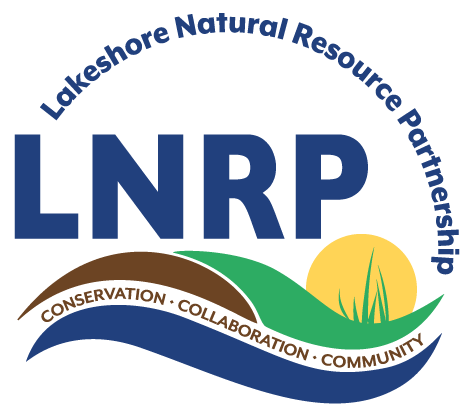The Lakeshore Water Summit’s 15 Years of Cross-Generational Conservation Impact
2024 Stream Team interns collecting data
This year marked a milestone as we celebrated the 15th annual Lakeshore Water Summit, hosted by the Lakeshore Water Institute of the UW-Green Bay Manitowoc Campus in partnership with Lakeshore Natural Resource Partnership (LNRP), the Friends of Hika Bay, and the Freshwater Collaborative of Wisconsin.
Since its inception, this summit has offered a unique platform for undergraduate research interns—fondly known as the “Stream Team”—to present findings from their Summer water quality monitoring and research. Each year students collect samples from sites in Little Manitowoc Creek, Centerville Creek, and Pine Creek. Professors Rick Hein and Becky Abler lead the intern program, guiding the students through rigorous collection protocols and data analysis. Stream Team presentations showcase data that has informed numerous watershed restoration projects, bolstering local and regional conservation efforts while inspiring the next generation of environmental stewards.
Highlights from This Year’s Summit
The 2024 summit, held on October 9th, showcased research that examined the impacts of land use on water quality. One highlight was the team's analysis of phosphorus levels in urban versus rural streams, both after rain events and during dry periods. These insights are helpful in understanding stormwater runoff impacts and pinpointing areas that may require additional conservation action to reduce nutrient loading in waterways (such as phosphorus pollution).
Stream Team Summer 2024 Sampling Sites
Stream Team research is instrumental in both measuring the success of completed restoration projects and identifying pollution hot spots that require further investigation and possible intervention. This year’s findings showed the continued success of the Centerville Creek restoration project. Student researchers observed that restoration areas exhibited more stable runoff indicators, suggesting that these initiatives are effectively minimizing fluctuations in water quality after heavy rain events, compared to non-restored areas. They also identified an E. coli hotspot that they hypothesized may be caused by an underground septic system leak.
15 years of data present exciting possibilities for future research into long term trends and spotting significant outliers, which can determine the next restoration priorities in the watershed. The value of this long-term data extends far beyond our local creeks. The data gathered by the Stream Team is publicly available, providing insights for agencies like the Wisconsin Department of Natural Resources (WDNR) and Manitowoc County. This information contributes to regional standards for nutrient and sediment reduction, including Total Maximum Daily Load (TMDL) parameters. With its dual benefit—supporting both local initiatives and regional goals—this work also positions the Lakeshore Water Institute program as a potential model for other community-based monitoring efforts across the state.
You can view a full-length recording of this year’s Lakeshore Water Summit along with presentation slides here. Funding for this program was generously provided by Wisconsin Sea Grant, WDNR, and the West Foundation.
Introducing Sam Frauenfeld: LNRP’s New Partner Project Coordinator
Sam Frauenfeld in the lab with Professor Rick Hein
This Fall, LNRP is thrilled to welcome Sam Frauenfeld as our new Partner Project Coordinator. A former Stream Team member of two years, Sam represents the value of providing hands-on conservation education for young people, an important part of LNRP’s mission. Sam is pursuing a degree in biology with an emphasis on ecology and conservation, complemented by double minors in chemistry and environmental science, and will graduate in Spring 2025. Learn more about Sam by reading her bio.
Sam’s journey with the Stream Team provided her with real-world experience, a network of mentors and peers, and the ability to make a difference in the community she grew up in. “Working with real-world data and presenting our findings at events like the Water Summit and Lake Michigan Day taught me the importance of accuracy and accountability in conservation work,” Sam shared. She credits the program with helping her develop essential skills in scientific communication, critical thinking, and persistence in the face of challenges - qualities that will be invaluable in her role at LNRP.
Honoring Legacy and Supporting the Future of Conservation
LNRP’s support of young conservationists like Sam would not be possible without the foundation laid by dedicated individuals like Russ Tooley, a founding member of the Friends of Hika Bay (FOHB). When Russ passed away this Summer, LNRP and the lakeshore community lost an important leader and citizen activist. As the former Water Quality Committee Chair at FOHB, Russ was instrumental in establishing the Stream Team program that continues to inspire students and inform our restoration work today. We invite you to honor his legacy by reading this beautiful tribute written by his wife, Mary.
Through programs like the Stream Team, LNRP is committed to fostering the next generation of conservationists and advancing the legacy of those who have come before. Here’s to 15 years of the Lakeshore Water Summit—and to the next 15 years of building a vibrant community of conservationists dedicated to safeguarding Wisconsin’s natural resources.



